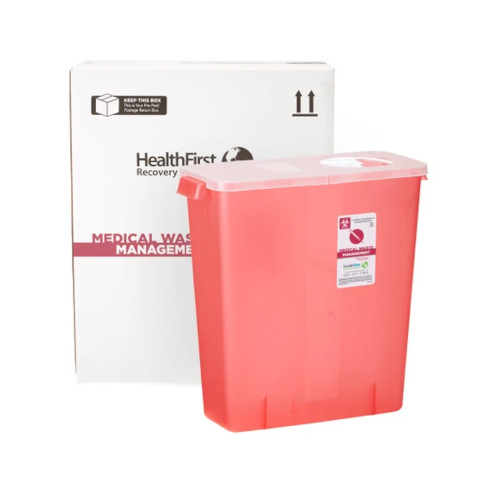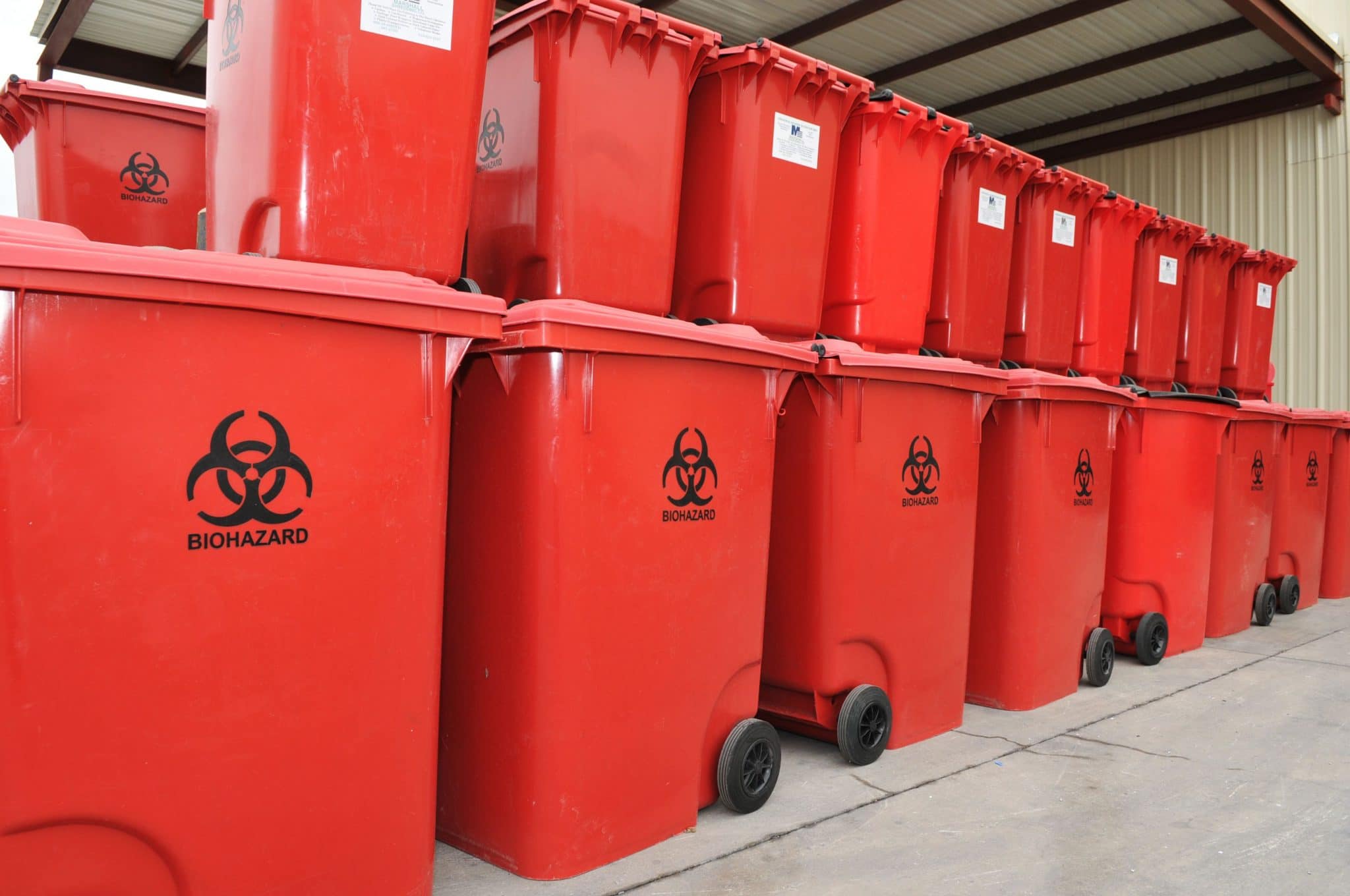Navigating Medical Waste Disposal: Important Solutions for Health Care Facilities
In the complex landscape of healthcare procedures, the administration of medical waste is a vital element that requires meticulous focus. Health care facilities, whether small centers or large health centers, are turned over with the responsibility of handling, treating, and getting rid of a wide range of clinical waste streams. The complexities associated with navigating via the governing requirements, guaranteeing appropriate waste segregation, and executing safe collection and transport processes are paramount. Comprehending the important services that sustain medical garbage disposal is not just an issue of conformity yet likewise an essential component in safeguarding public health and environmental health. The details of this process are important for medical care facilities, and the competence offered in this realm plays a crucial role in maintaining the integrity of healthcare systems.
Regulatory Compliance Support
For health care centers, making sure regulative compliance assistance is important to maintain correct handling and disposal of clinical waste. Complying with policies established forth by organizations such as the Epa (EPA) and the Occupational Safety And Security and Health And Wellness Administration (OSHA) is essential to avoid environmental contamination, protect public health and wellness, and prevent prospective legal consequences. Regulatory compliance support offers healthcare centers with assistance on just how to correctly set apart, shop, transport, and get rid of different types of clinical waste according to regional, state, and government guidelines. This support includes support in producing and applying thorough waste management plans, carrying out routine staff training sessions, and performing audits to guarantee ongoing conformity. By partnering with governing conformity experts, medical care facilities can remain updated on advancing laws, reduce threats connected with inappropriate waste disposal, and ultimately add to a much safer and extra sustainable setting for all.
Waste Partition Advice

Health care facilities should supply clear guidelines and training to team on just how to segregate waste effectively. This consists of separating general waste from unsafe products such as sharps, infectious waste, pharmaceuticals, and chemical waste. Color-coded bins, labels, and signs are commonly used to assist in waste segregation methods. Routine audits and surveillance of waste partition processes are necessary to determine any kind of issues and make necessary improvements.
Collection and Transportation Providers

Proper collection and transport solutions are essential parts of the medical waste disposal process in health care centers. These services make certain that hazardous products are taken care of securely and in conformity with policies to shield both the atmosphere and public wellness. Healthcare facilities rely upon specialized waste management business to supply efficient collection and transport solutions customized to their requirements.
Medical waste collection entails setting apart various kinds of waste at the point of generation, utilizing color-coded containers or bags to identify in between basic, harmful, pharmaceutical, and various other waste streams. Once collected, the waste is delivered in specialized vehicles equipped to handle harmful materials securely.
Treatment and Disposal Solutions
In the realm of medical waste disposal for health care facilities, after the vital phase of collection and transportation services, the focus changes in the direction of carrying out effective therapy and disposal options. Treatment options article source commonly involve procedures such as autoclaving, which uses vapor under stress to disinfect the waste. This approach is typically made use of for infectious waste that must be rendered non-hazardous prior to disposal. An additional common therapy technique is incineration, where waste goes through heats in controlled settings to minimize its volume and eliminate pathogens.
Disposal remedies encompass the final action in the medical waste administration procedure. Reusing and resource recovery are likewise getting grip as lasting disposal options for certain kinds of clinical waste products.
Effective treatment and disposal services are critical in ensuring compliance with regulations and protecting public health and wellness and the setting. Health care facilities must carefully assess and pick appropriate methods that align with their waste management goals and sustainability initiatives.
Personnel Training and Education And Learning

To successfully take care of medical garbage disposal in health care facilities, extensive personnel training his response and education and learning play a crucial role in guaranteeing adherence to regulatory requirements and maintaining a secure atmosphere. Proper training outfits team with the expertise and abilities needed to take care of various kinds of clinical waste, segregate them properly, and package them safely for disposal. By educating staff members on the dangers connected with improper handling of clinical waste, facilities can reduce the chance of mishaps, contamination, and regulatory violations.

Final Thought
Finally, medical care facilities count on important clinical garbage disposal solutions to make certain regulatory compliance, appropriate waste partition, risk-free collection and transport, efficient therapy and disposal, in addition to staff training and education and learning. These services play an essential function in preserving the wellness and safety of both the original source health care employees and the general public, highlighting the value of appropriate administration of medical waste in health care setups.
For health care facilities, making sure regulative compliance support is necessary to preserve proper handling and disposal of medical waste. Waste partition entails classifying different types of clinical waste to make sure ideal handling, therapy, and disposal. This includes dividing basic waste from harmful products such as sharps, transmittable waste, drugs, and chemical waste.Medical waste collection involves setting apart different kinds of waste at the factor of generation, utilizing color-coded bags or containers to differentiate between basic, harmful, pharmaceutical, and other waste streams.In the realm of clinical waste disposal for health care facilities, after the essential stage of collection and transport services, the focus changes towards executing effective therapy and disposal services.
Comments on “Streamlined Medical Waste Disposal Services: Top Priority for Public Health”